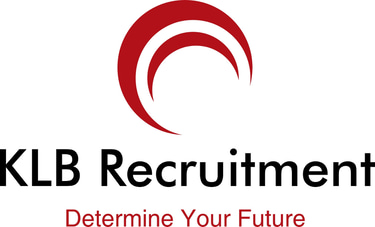Future-Proof Your Career Against Artificial Intelligence
With the rapid rise of automation and artificial intelligence (AI), many employees fear the impact of AI on jobs. Learn essential skills to future-proof your career and thrive in an AI-driven world.
Liza Brits
2/21/2025


The rapid rise of automation and artificial intelligence (AI) is transforming the job market. While these technologies bring efficiency and innovation, they also raise concerns about job displacement. According to a McKinsey report, up to 800 million jobs worldwide could be automated by 2030.
However, not all careers are equally at risk. By developing the right skills, you can future-proof your career and thrive in an automated world.
Here are the top skills to focus on to stay ahead of the curve:
1. Critical Thinking and Problem-Solving
Automation excels at repetitive, rule-based tasks, but it struggles with complex, unstructured problems. Critical thinking, the ability to analyze information, evaluate options, and make informed decisions is a uniquely human skill that machines can’t replicate.
How to develop it:
Take on projects that require strategic planning and decision-making.
Practice solving real-world problems through case studies or simulations.
Engage in activities like debate, puzzles, or strategy games to sharpen your analytical skills.
2. Creativity and Innovation
While AI can generate content and ideas, it lacks the ability to think outside the box or create something truly original. Creativity, whether in art, design, business strategy, or problem-solving is a skill that will always be in demand.
How to develop it:
Explore hobbies that encourage creativity, such as writing, painting, or coding.
Brainstorm regularly and challenge yourself to think differently.
Stay curious and open to new experiences, as they often spark innovative ideas.
3. Emotional Intelligence (EQ)
Emotional intelligence, the ability to understand, manage, and relate to others’ emotions is crucial in roles that require collaboration, leadership, and customer interaction. Machines can’t replicate empathy, active listening, or the ability to build meaningful relationships.
How to develop it:
Practice active listening and empathy in your daily interactions.
Seek feedback from colleagues and mentors to improve your interpersonal skills.
Take courses or read books on emotional intelligence and communication.
4. Adaptability and Lifelong Learning
The pace of technological change means that the skills you have today may not be enough tomorrow. Being adaptable and committed to continuous learning ensures you can evolve with the job market.
How to develop it:
Stay informed about industry trends and emerging technologies.
Take online courses, attend workshops, or earn certifications in new areas.
Embrace change and view challenges as opportunities to grow.
5. Digital Literacy and Tech Savviness
Even if you’re not in a tech role, understanding how to use digital tools and platforms is essential. Familiarity with AI, data analysis, and automation tools can make you more valuable in any industry.
How to develop it:
Learn the basics of coding or data analysis (e.g., Python, Excel, or SQL).
Explore automation tools like Zapier or AI platforms like ChatGPT.
Stay updated on digital trends and tools relevant to your field.
6. Leadership and People Management
While automation can handle tasks, it can’t inspire, motivate, or lead teams. Leadership skills, such as delegation, conflict resolution, and vision-setting are critical for roles that require managing people or projects.
How to develop it:
Take on leadership roles in your current job or volunteer organizations.
Seek mentorship from experienced leaders in your industry.
Read books or take courses on leadership and management.
7. Complex Communication
Effective communication, both written and verbal is key to roles that involve negotiation, persuasion, or explaining complex ideas. While AI can generate text, it often lacks nuance and context.
How to develop it:
Practice writing clearly and concisely, whether in emails, reports, or presentations.
Hone your public speaking skills through practice or joining groups like Toastmasters.
Learn to tailor your communication style to different audiences.
8. Entrepreneurial Mindset
An entrepreneurial mindset, thinking like an owner, taking initiative, and identifying opportunities, is valuable in any role. It allows you to create value, even in automated environments.
How to develop it:
Look for ways to improve processes or solve problems in your current role.
Start a side project or business to practice entrepreneurial skills.
Network with entrepreneurs and learn from their experiences.
9. Cultural Competency and Global Awareness
As workplaces become more diverse and global, understanding different cultures and perspectives is increasingly important. This skill is especially valuable in roles that require collaboration across borders or with diverse teams.
How to develop it:
Work or volunteer in multicultural environments.
Learn a new language or study different cultures.
Stay informed about global trends and issues.
10. Ethical Judgment and Decision-Making
As AI and automation raise ethical questions, such as data privacy and bias, the ability to make ethical decisions is becoming more important. Employers value professionals who can navigate these challenges responsibly.
How to develop it:
Stay informed about ethical issues in your industry.
Take courses on ethics or corporate social responsibility.
Practice making decisions that balance business goals with ethical considerations.
Conclusion
Automation is not a threat to all jobs, it’s a tool that can enhance productivity and create new opportunities. By focusing on skills that complement automation, you can position yourself as an indispensable asset in the workforce. The key is to stay proactive, embrace change, and continuously invest in your personal and professional growth.
Contact Us
+27 060 930 6552
info@klbrecruit.co.za
© 2025 KLB Recruitment. All rights reserved.
Discover One of the Best Online Learning Platforms for 2025: LearnWorlds Review
How to Pass an AI-Powered Interview: Tips & Tricks for Job Seekers
Paid vs Free Online Resume Builders - Are Free Options Good Enough?
Top 3 Best Remote Job Sites in 2025 - No Scams (Tried & Tested)
Struggling with Interview Nerves? This AI Tool Gives You Instant Feedback and Coaching
Job Hunting Fatigue? Use These AI Job Application Tools to Apply While You Sleep
Top 5 Skills Employers are Looking for in 2025. How to Showcase Them on Your CV
Beware of Social Media Side Gig Scams: If You Have to Pay, Walk Away!
Social Media Strategies for Landing Your Dream Job: Dos and Don'ts
Salary Negotiation: How to Confidently Get What You're Worth
Streamline Your Hiring Process: Benefits of Partnering with a Recruitment Agency
The Rise of Remote and Hybrid Work: Shaping the Future of Employment
Top 3 Remote Job Sites to Kickstart Your Work from Home Career
A Guide to Switching Careers for Job Seekers Wanting a Career Change
Ace Your Next Interview: Expert Advice and Tools for Success
